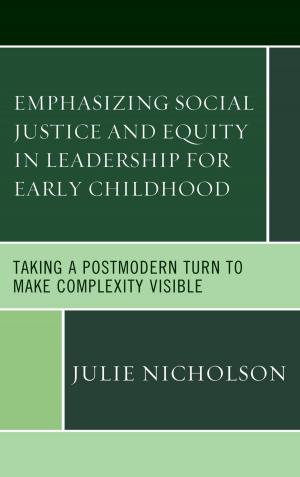The Sacred Monstrous
A Reflection on Violence in Human Communities
Nonfiction, Religion & Spirituality, Philosophy| Author: | Wendy C. Hamblet | ISBN: | 9780739160558 |
| Publisher: | Lexington Books | Publication: | December 10, 2003 |
| Imprint: | Lexington Books | Language: | English |
| Author: | Wendy C. Hamblet |
| ISBN: | 9780739160558 |
| Publisher: | Lexington Books |
| Publication: | December 10, 2003 |
| Imprint: | Lexington Books |
| Language: | English |
Wedding an analysis of relevant anthropological literature and philosophical theory, this important book re-positions violence—long trivialized by philosophers as an incidental or anomalous feature of humanity—as a central concern for ethical thought. Wendy Hamblet focuses on a fundamental paradox that emerges when well-meaning communities and individuals attempt to implement their ideals in our social, or socialized, world. Very often the unintended consequences of these individual or communal ideals run headlong into the brute fact of bloody human engagement. Through her investigation of violence-legitimization in myth and ancient tales, philosophical accounts (from Plato to Nietzsche), the concept of home as 'refuge,' and recent social scientific data, Hamblet takes up the charge that violence is steeped in our being—it pervades human history and is embedded in the ethos of our modern institutions—and gives us essential tools for better understanding how violence actually operates.
Wedding an analysis of relevant anthropological literature and philosophical theory, this important book re-positions violence—long trivialized by philosophers as an incidental or anomalous feature of humanity—as a central concern for ethical thought. Wendy Hamblet focuses on a fundamental paradox that emerges when well-meaning communities and individuals attempt to implement their ideals in our social, or socialized, world. Very often the unintended consequences of these individual or communal ideals run headlong into the brute fact of bloody human engagement. Through her investigation of violence-legitimization in myth and ancient tales, philosophical accounts (from Plato to Nietzsche), the concept of home as 'refuge,' and recent social scientific data, Hamblet takes up the charge that violence is steeped in our being—it pervades human history and is embedded in the ethos of our modern institutions—and gives us essential tools for better understanding how violence actually operates.















